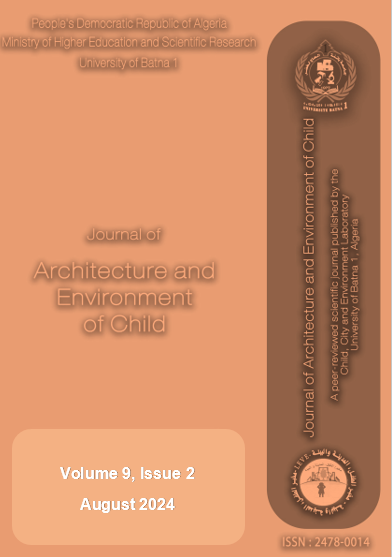The Child in Urban Policy Agendas: The City of Constantine as a Model
Keywords:
urban policies, child, city, ; urban space, quality of lifeAbstract
The study aims to investigate the components of urban policies and the extent to which they address children and their areas of interest, especially with regard to urban planning and the right to the urban sphere. For this purpose, the current study sought to investigate the merits of this policy with regard to the life of the child and answer the following question: To what extent urban policies seek to provide an urban life capable of ensuring a better quality life for the child, where the descriptive approach was adopted, observation technology and analysis were adopted to translate the reality of the phenomenon.
The study concluded with several results, the most important of which is that the urban policy of the Algerian city has registered an increasing interest in the areas of children in the urban environment and that the beginnings it has achieved on the ground for the city of Constantine, for example, have been well received and accepted, and have opened promising prospects for its ability to achieve satisfactory results for the family, children and citizens in general.


